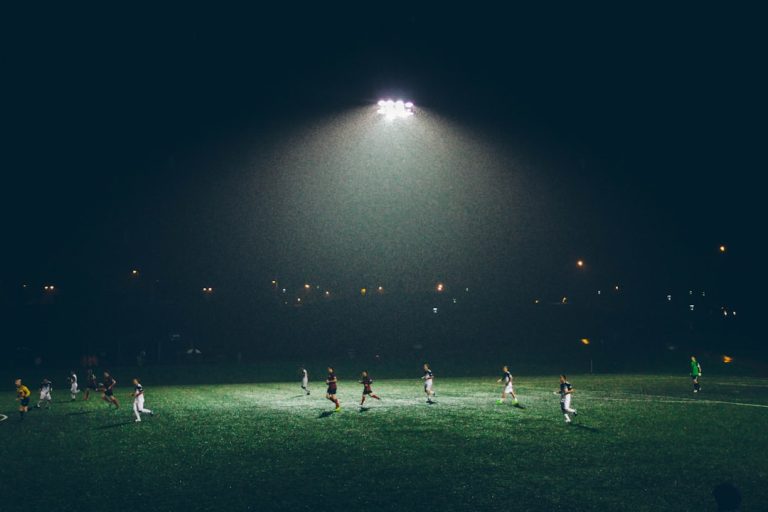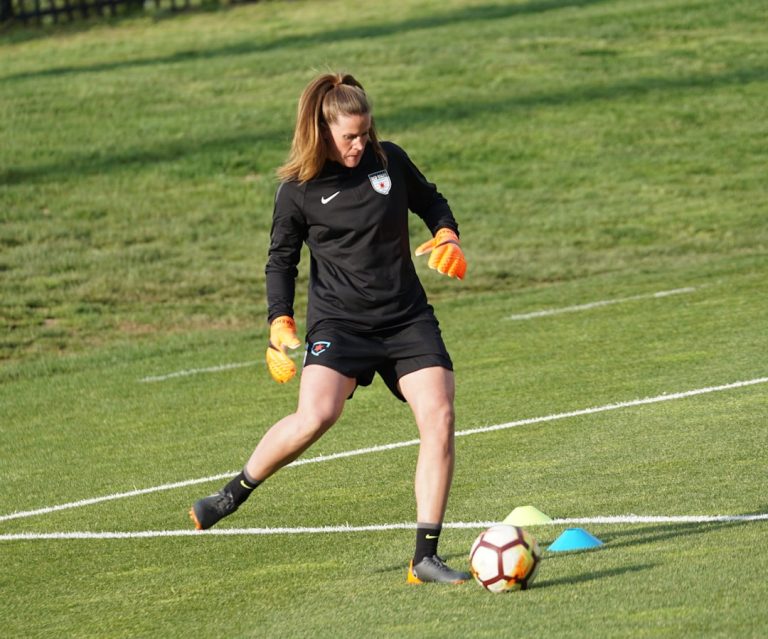Engaging in regular physical activity is one of the most effective ways to enhance overall physical fitness. Exercise not only strengthens the muscles and improves cardiovascular health but also boosts endurance and flexibility. When individuals commit to a consistent workout routine, they often experience significant improvements in their stamina, allowing them to perform daily tasks with greater ease and less fatigue.
This increase in physical capability can lead to a more active lifestyle, where individuals feel empowered to explore new activities, whether it be hiking, cycling, or participating in sports. Moreover, the physiological benefits of exercise extend beyond mere muscle gain; they include improved metabolic function, better sleep quality, and enhanced immune response, all of which contribute to a more robust and resilient body. Furthermore, the journey toward improved physical fitness often fosters a sense of accomplishment and motivation.
As individuals set and achieve fitness goals—be it running a certain distance, lifting a specific weight, or mastering a new skill—they cultivate a positive self-image and a sense of pride in their abilities. This transformation can be particularly profound for those who may have previously struggled with their physical health or self-esteem. The visible changes in body composition and overall vitality serve as tangible reminders of their hard work and dedication.
In this way, improved physical fitness becomes not just a goal but a catalyst for a healthier lifestyle, encouraging individuals to make more informed choices about nutrition and wellness that further enhance their quality of life.
Key Takeaways
- Regular exercise improves physical fitness, leading to better overall health and increased energy levels.
- Engaging in physical activity can help reduce stress and anxiety, leading to enhanced mental well-being and a more positive outlook on life.
- Participating in sports or fitness activities can help develop self-discipline and determination, leading to improved focus and goal-setting abilities.
- Involvement in physical activities provides opportunities for personal growth and self-discovery, as individuals push their limits and overcome challenges.
- Regular physical activity can lead to long-term health benefits, such as reduced risk of chronic diseases and improved longevity.
Enhanced mental well-being
The connection between physical activity and mental well-being is well-documented, with numerous studies highlighting the positive effects of exercise on mood and cognitive function. Engaging in regular physical activity releases endorphins, often referred to as “feel-good” hormones, which can significantly elevate mood and reduce feelings of depression and anxiety. This biochemical response is not merely a temporary high; it can lead to long-term improvements in emotional resilience.
Individuals who incorporate exercise into their daily routines often report feeling more balanced and equipped to handle life’s challenges. The rhythmic nature of many forms of exercise, such as running or swimming, can also serve as a form of moving meditation, allowing individuals to clear their minds and focus on the present moment. Moreover, the mental benefits of physical fitness extend beyond immediate mood enhancement.
Regular exercise has been shown to improve cognitive functions such as memory, attention, and problem-solving skills. This is particularly important in today’s fast-paced world, where mental agility is crucial for success in both personal and professional realms. As individuals engage in physical activities that challenge their coordination and strategic thinking—like team sports or dance—they stimulate neural pathways that enhance brain function.
The cumulative effect of these benefits can lead to greater productivity and creativity, fostering a sense of accomplishment that permeates all areas of life. Thus, the pursuit of physical fitness becomes a holistic endeavor that nurtures both body and mind.
Increased self-discipline and determination

The journey toward improved physical fitness is often fraught with challenges that require significant self-discipline and determination. Committing to a regular exercise regimen demands consistency, especially when faced with obstacles such as fatigue, time constraints, or lack of motivation. However, as individuals push through these barriers, they cultivate a strong sense of self-discipline that transcends the gym or workout studio.
This newfound resilience can spill over into other aspects of life, enabling individuals to tackle personal and professional challenges with greater tenacity. The ability to set goals, create actionable plans, and follow through despite difficulties is a skill that can be honed through the discipline required for fitness training. Additionally, the process of setting and achieving fitness goals fosters an unwavering determination that can be transformative.
Whether it’s training for a marathon or simply striving to complete a challenging workout routine, each milestone reached reinforces the belief that hard work pays off. This determination not only builds confidence but also instills a growth mindset—an understanding that effort leads to improvement. As individuals witness their progress over time, they become more willing to take on new challenges outside the realm of fitness, whether it be pursuing further education, advancing in their careers, or embarking on personal projects.
In this way, the discipline cultivated through physical fitness becomes a powerful tool for personal empowerment and achievement.
Opportunities for personal growth and self-discovery
| Opportunities | Metrics |
|---|---|
| Mentorship Programs | Number of mentors available |
| Training Workshops | Number of workshops offered |
| Personal Development Courses | Completion rate of courses |
| Self-assessment Tools | Usage rate of assessment tools |
Engaging in physical fitness often opens doors to profound personal growth and self-discovery. As individuals embark on their fitness journeys, they are frequently confronted with their limitations—both physical and mental. This confrontation can be uncomfortable but ultimately serves as an opportunity for introspection and growth.
By pushing past perceived boundaries, individuals learn more about their capabilities and strengths. They may discover hidden talents or interests in activities they had never considered before, such as martial arts or yoga. This exploration not only enhances their physical repertoire but also enriches their understanding of themselves as multifaceted beings capable of growth and change.
Moreover, the community aspect of many fitness activities can further facilitate personal growth. Joining a gym class or participating in team sports introduces individuals to diverse groups of people who share similar goals. These interactions can lead to meaningful friendships and support networks that encourage accountability and motivation.
The shared experiences of overcoming challenges together foster camaraderie and provide opportunities for learning from others’ journeys. In this environment of mutual encouragement, individuals often find themselves inspired to set higher goals and pursue new avenues for self-improvement. Thus, the realm of physical fitness becomes a fertile ground for self-discovery, where individuals not only enhance their bodies but also uncover deeper layers of their identities.
Reduced stress and anxiety
In an increasingly fast-paced world filled with pressures from work, relationships, and societal expectations, finding effective ways to manage stress is essential for maintaining overall well-being. Regular physical activity has been shown to be one of the most effective natural remedies for reducing stress and anxiety levels. Exercise acts as a powerful antidote by promoting the release of endorphins while simultaneously lowering levels of stress hormones like cortisol.
This biochemical response creates a sense of relaxation and calmness that can last long after the workout has ended. Individuals who incorporate exercise into their routines often report feeling more centered and capable of handling stressors with greater ease. Additionally, engaging in physical activity provides an invaluable opportunity for distraction from daily worries.
Whether it’s hitting the gym, going for a run in nature, or participating in a group class, these moments allow individuals to step away from their responsibilities and focus solely on their bodies and movements. This shift in focus can serve as a mental reset, providing clarity and perspective on life’s challenges. Furthermore, many forms of exercise encourage mindfulness—being present in the moment—which has been shown to significantly reduce anxiety levels.
By cultivating this awareness through physical activity, individuals not only alleviate immediate stress but also develop coping mechanisms that can be applied in various aspects of life.
Enhanced social skills and teamwork

Participating in physical fitness activities often necessitates interaction with others, whether through team sports or group classes. These social environments provide fertile ground for enhancing social skills and fostering teamwork. Engaging with peers during workouts encourages communication, collaboration, and mutual support—skills that are invaluable both inside and outside the gym.
For instance, team sports require players to strategize together, understand each other’s strengths and weaknesses, and work towards a common goal. This collaborative spirit not only builds camaraderie but also teaches individuals how to navigate interpersonal dynamics effectively. Moreover, the social aspect of fitness can significantly boost confidence levels.
As individuals engage with others who share similar interests or goals, they often find themselves stepping out of their comfort zones—whether it’s trying new activities or forming new friendships. These interactions can lead to lasting relationships built on shared experiences and mutual encouragement. Additionally, being part of a community focused on health and wellness can inspire individuals to adopt healthier habits collectively.
The support system created through these social connections fosters accountability while making the journey toward fitness more enjoyable. Ultimately, enhanced social skills gained through physical fitness contribute to stronger relationships both within the fitness community and beyond.
Long-term health benefits
The long-term health benefits associated with regular physical activity are profound and far-reaching. Engaging in consistent exercise has been linked to reduced risks of chronic diseases such as heart disease, diabetes, obesity, and certain types of cancer. By maintaining an active lifestyle, individuals can improve their cardiovascular health through better circulation and lower blood pressure while also enhancing metabolic function that aids in weight management.
These physiological changes contribute significantly to longevity and overall quality of life as people age. Moreover, regular exercise strengthens bones and muscles, reducing the risk of osteoporosis and frailty later in life. In addition to physical health benefits, regular exercise plays a crucial role in promoting mental health over the long term.
Studies have shown that individuals who maintain an active lifestyle are less likely to experience cognitive decline as they age compared to sedentary counterparts. The neuroprotective effects of exercise help preserve brain function while enhancing memory and cognitive abilities well into older adulthood. Furthermore, the habits formed through regular physical activity often lead to healthier lifestyle choices overall—such as improved nutrition and better sleep patterns—which compound the benefits over time.
Thus, committing to physical fitness is not merely about immediate gains; it is an investment in one’s future health and well-being that pays dividends for years to come.
If you’re interested in exploring more about individual sports and their unique challenges and benefits, you might find the article on the evolution and impact of individual sports quite enlightening. This piece delves into how sports like tennis, swimming, and athletics not only enhance physical fitness but also promote mental resilience and personal growth. It’s a great read for anyone looking to understand the deeper significance of engaging in sports that rely on personal motivation and individual skill.
FAQs
What are individual sports?
Individual sports are athletic activities in which participants compete against each other as individuals, rather than as part of a team. Examples of individual sports include tennis, golf, swimming, track and field, and gymnastics.
What are the benefits of participating in individual sports?
Participating in individual sports can provide numerous benefits, including improved physical fitness, increased self-discipline, enhanced mental toughness, and the opportunity for personal achievement and growth. Individual sports also offer the chance for athletes to compete at their own pace and focus on their own performance.
What are some popular individual sports?
Some popular individual sports include tennis, golf, swimming, track and field (including running, jumping, and throwing events), gymnastics, cycling, skiing, figure skating, and martial arts. These sports require athletes to compete on their own, without the support of a team.
What skills are important for success in individual sports?
Success in individual sports often requires a combination of physical skills, such as strength, speed, agility, and coordination, as well as mental skills, such as focus, determination, and the ability to handle pressure. Athletes in individual sports must also possess a strong work ethic and the ability to self-motivate.
Are there competitive opportunities for individuals in sports?
Yes, there are numerous competitive opportunities for individuals in sports. Many individual sports have organized competitions at the local, national, and international levels, including tournaments, races, and championships. Athletes can also compete individually as part of a larger team competition, such as in the Olympics or other multi-sport events.







